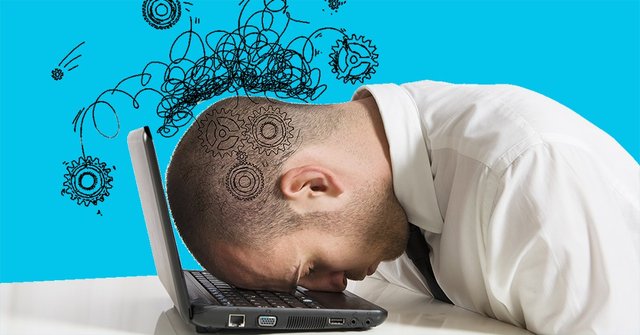
You think you have control over your actions.
You think you make decisions and exercise free will.
But you’re wrong. A huge portion of your daily activities are the not the result of conscious decisions, but unconscious habits.
Our habits define us. It may feel like we make decisions, but in reality, nearly half the time we’re simply robots, following a script. In his best-selling book, The Power of Habit, Charles Duhigg explains:
“Most of the choices we make each day may feel like the product of well-considered decision making, but they’re not. They’re habits. And though each habit means relatively little on its own, over time, the meals we order, what we say to our kids each night, whether we save or spend, how often we exercise, and the way we organize our thoughts and work routines have enormous impacts on our health, productivity, financial security, and happiness. One paper published by a Duke University researcher in 2006 found that more than 40 percent of the actions people performed each day weren’t actual decisions, but habits.”
It may not seem like it, but this is good news. Because when you understand the way habits work, you can intervene.
You can leverage your habits to increase your productivity and to make your life less stressful.
Information Chunking:
It’s important to understand that habits, defined by Duhigg as, “the choices that all of us deliberately make at some point, and then stop thinking about but continue doing, often every day,” are a way for our brains to conserve energy.
Without habits, we would be overwhelmed with information at all times. It would paralyze us.
Fortunately, our brains have a way to reduce the cognitive impact of a complicated task. Duhigg explains:
“This process—in which the brain converts a sequence of actions into an automatic routine—is known as “chunking,” and it’s at the root of how habits form. There are dozens—if not hundreds—of behavioral chunks that we rely on every day. Some are simple: You automatically put toothpaste on your toothbrush before sticking it in your mouth. Some, such as getting dressed or making the kids’ lunch, are a little more complex. Others are so complicated that it’s remarkable a small bit of tissue that evolved millions of years ago can turn them into habits at all.”
Take driving for instance. Imagine if you had to consciously make a decision for every single action you need to take while you drive. It would be impossible to drive safely, and its why new drivers are required to complete not only driving school but in-car training as well. The basics need to be chunked into habits.

Think about everything you need to do just to park your car. First, you have to look for traffic. Then, you have to turn on your blinker, turn the wheel, gently press the accelerator, straighten out the wheel, hit the break, put the car in park and turn off the car.
But by compressing this complex sequence of actions into a single automatic routine, we free our brains to focus on the things that matter. In the end, you don’t have to process the sequence of actions, you simply park the car.
By building healthy routines and adopting beneficial habits, you can improve your wellbeing and drastically increase productivity.
The Importance of Routines:
Following a fixed daily is one of the most powerful ways to adopt a new habit. Remember, habits are a way for our brains to conserve energy.
Making changes in your life is never simple. But if you’re trying to develop new habits, it’s much less stressful when you have a routine to follow. It takes away the need to make constant decisions, saving your brain’s precious resources. And decision making, it turns out, is not an infinite resource.
In reality, we have only a fixed amount of energy available to make decisions during the day. The more energy we waste making small, insignificant choices, the less we have available to make important ones. This phenomenon is commonly known as Decision Fatigue, and as a consequence, our ability to make good decisions deteriorates as we make decisions throughout the day.

In a New York Times article titled “Do You Suffer from Decision Fatigue,” journalist John Tierney explains:
“No matter how rational and high-minded you try to be, you can’t make decision after decision without paying a biological price. It’s different from ordinary physical fatigue — you’re not consciously aware of being tired — but you’re low on mental energy. The more choices you make throughout the day, the harder each one becomes for your brain…”
It’s a better choice to automate as much of your life as possible by following a fixed routine, rather than having to make continuous decisions throughout the day.
It will allow you to have more energy available, more of the time, to devote to the things that matter.
chunking might be compared to 'muscle memory'.
Downvoting a post can decrease pending rewards and make it less visible. Common reasons:
Submit
For sure, though it applies to far more than physical movement. It's mental muscle memory!
Downvoting a post can decrease pending rewards and make it less visible. Common reasons:
Submit
Of course I believe in free will. I have no choice.
Downvoting a post can decrease pending rewards and make it less visible. Common reasons:
Submit
Have you read predictably irrational by Dan Ariely? It's brilliant. This post is great. I'll come back for more. J.
Downvoting a post can decrease pending rewards and make it less visible. Common reasons:
Submit